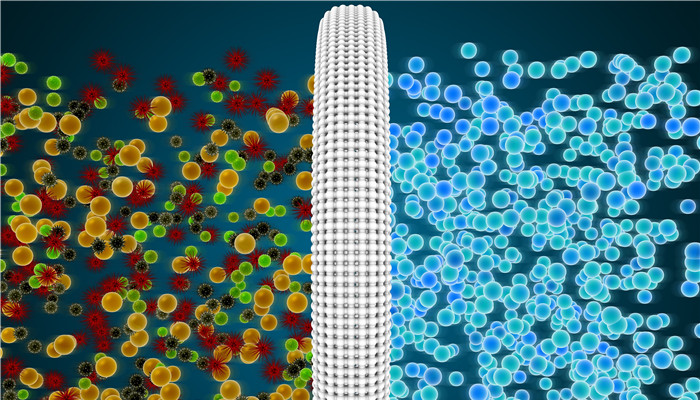
Porous carbon has broad application prospects and my country’s industrial structure still needs to be optimized
Porous carbon refers to carbon materials with pore structures of different sizes. Porous carbon is a new type of porous material with the characteristics of adjustable pore structure, easy functionalization, large specific surface area, excellent conductivity, and good stability. Porous carbon has outstanding characteristics and has broad application prospects in papermaking, ceramics, bone repair, sewage treatment, energy storage, drug sustained release, electrochemistry, molecular adsorption and other fields.
The pore size of porous carbon is variable. According to different pore sizes, porous carbon can be divided into three types: microporous carbon, mesoporous carbon and macroporous carbon. In terms of type, porous carbon is further divided into activated carbon, carbon molecular sieve, activated carbon fiber and porous nanocarbon. , graded porous carbon and other varieties. There are many methods for preparing porous carbon, including template method, laser ablation method, activation method, gel crystallization method, salting out method, co-precipitation method, emulsion film method, etc. There are many types of porous carbon. With consumption upgrading, there is greater room for development of high-end porous carbon with the characteristics of green, efficient, safe, and environmentally friendly.
According to the “2022-2027 China Porous Carbon Industry Market In-depth Research and Development Prospects Forecast Report released by the Industrial Research Center, due to It has a wide range of applications. In recent years, the porous carbon market sales have maintained a growth trend. In 2021, the global porous carbon market sales will reach more than 2 million tons, a year-on-year increase of 3.0%, and the market size is approximately US$4.24 billion. It is expected that in 2026, the global porous carbon market The scale will reach US$5.56 billion.
In the early days, global porous carbon production capacity was mainly concentrated in developed countries, such as the Netherlands, the United States, Japan and other regions. Later, as environmental protection regulations became increasingly strict and labor costs increased, porous carbon production capacity gradually transferred to Southeast Asia, India, China and other regions. At present, my country has become a major producer of porous carbon, accounting for more than 40% of its production capacity. Among them, the production scale and export scale of activated carbon rank first in the world.
In the global porous carbon market, overseas companies such as Kuraray of Japan, Cabot of the United States, and Osaka Gas Chemical have first-mover and technological advantages and occupy a major share of the high-end market. Although my country is a major producer of porous carbon, the scale of enterprises is generally small, the level of automation of production equipment is low, and the production technology is relatively backward. There is still a large gap between the industry and developed countries in terms of technology, innovation capabilities, and product quality. At present, domestic porous carbon production companies include Shenhua Ningxia Coal Industry, Shanxi Xinhua Chemical Industry, Fujian Xinsen Carbon Industry, Jiangsu Zhuxi Activated Carbon, etc.
Industry analysts said that porous carbon has many types, outstanding features, and wide application fields. In the context of consumption upgrading, the porous carbon market is developing The prospects are better. Porous carbon is a research hotspot at home and abroad. Foreign companies started early, have advanced technology, and occupy a major share of the high-end market. my country is a major producer of porous carbon, but the scale of companies is generally small and product performance is low. The structure of my country’s porous carbon industry still needs to be optimized in the future. , environmental protection, greenness and efficiency will become its important upgrade directions.

 微信扫一扫打赏
微信扫一扫打赏

